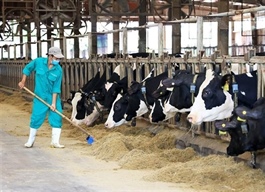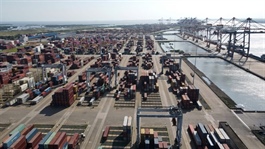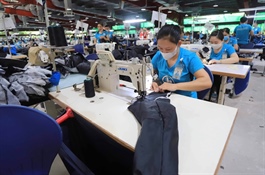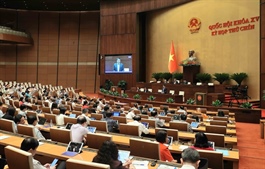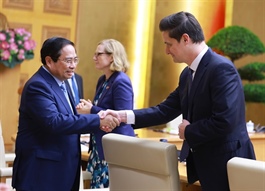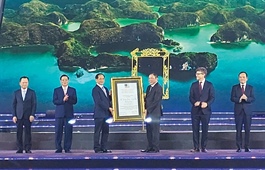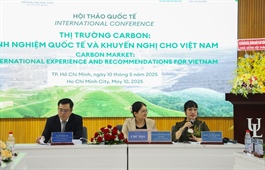Draft law to boost SOE autonomy through decentralisation reforms
Draft law to boost SOE autonomy through decentralisation reforms
The draft Law on Management and Investment of State Capital in Enterprises includes amendments to increase decentralisation and delegation, with a focus on enhancing the autonomy, accountability, and transparency of state-owned enterprises (SOEs).
This was suggested by Minister of Finance Nguyen Van Thang during the discussion session on the draft law at the National Assembly (NA) ninth session in Hanoi on May 13.
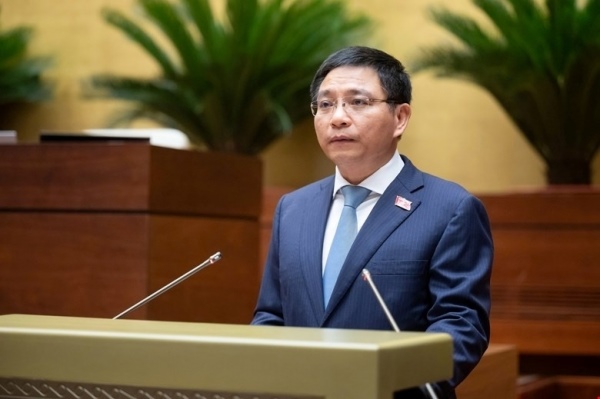
Minister of Finance Nguyen Van Thang |
During the session, lawmakers generally welcomed the amendments and expressed support for the key directions of the draft Law.
According to NA deputy Tran Anh Tuan, representing Ho Chi Minh City, the revised version reflects a constructive and open-minded approach, incorporating extensive feedback from deputies, experts, policymakers, and practical insights from SOEs.
"The draft Law grants the board members and chairpersons of SOEs greater authority over business strategies, operational planning, and wage policies. It also streamlines numerous administrative procedures, reflecting a decisive push towards decentralisation," said Tuan.
Meanwhile, deputy Trinh Xuan An from the southern province of Dong Nai, noted that the adoption of this law, alongside upcoming policies to support the private sector, would help harmonise development goals across both private and state sectors.
Several deputies offered additional suggestions to improve the law's feasibility and practical implementation.
For instance, deputy Tuan from Ho Chi Minh City highlighted a significant revision that allows up to 50 per cent of the SOE Development Investment Fund to be used for reinvestment and increasing SOEs’ charter capital.
Previously, such capital injections required multiple layers of approval and engaged cumbersome procedures. Tuan, however, recommended more detailed guidelines on eligibility criteria and expanding the scope for enterprises that face high capital demands for development.
Deputy Phan Van Hoa, from Dong Thap province in the Delta region, cautioned against enabling SOEs to engage in real estate activities outside their core business areas.
He argued for a more nuanced, case-by-case approach based on timing, location, and enterprise-specific conditions, rather than allowing all SOEs to invest in real estate indiscriminately.
In his response, MoF chief Nguyen Van Thang thanked the NA deputies for their thoughtful and responsible contributions, emphasising the drafting committee's commitment to incorporating feedback thoroughly and updating the draft accordingly.
Thang also noted that the draft Law aligns closely with the government's directives and state policies, and aims to troubleshoot obstacles in the current implementation of capital management regulations.
"One fundamental change in this revised Law is that the state will exercise its rights and obligations in proportion to its ownership in each enterprise. The state will act as an equal investor, without direct interference in the enterprise’s business operations," said Thang.
Another key principle of the draft law is to enhance SOEs' autonomy, self-responsibility, and accountability.
Businesses are expected to operate under market mechanisms and compete fairly in accordance with the law. The draft Law also aims to deepen decentralisation, streamline procedures, and improve enterprise governance.
In addition to expanding autonomy for state capital representatives in SOEs, Minister Thang emphasised that their roles will become more demanding, with responsibilities clearly outlined in a forthcoming government decree.
Each year, the state will assign specific performance targets. Based on these targets, state firms will be subject to rewards or sanctions depending on their implementation results. These performance evaluations shall be based on quantifiable metrics.
"There must be a clear yardstick for assessment. Profitability alone is not a sufficient indicator of success - we must compare it to bank interest rates, or benchmark it against peer companies in the same sector," said Thang.
The revised draft law now consists of eight chapters and 59 articles, three fewer than the version submitted at the NA’s eighth session, which concluded last November.
The updated draft Law has eliminated approximately 30 per cent of administrative procedures and reduced the number of processes requiring the Prime Minister’s approval by around half by delegating more authority to state capital representative agencies and to the enterprises themselves.
- 15:41 14/05/2025







